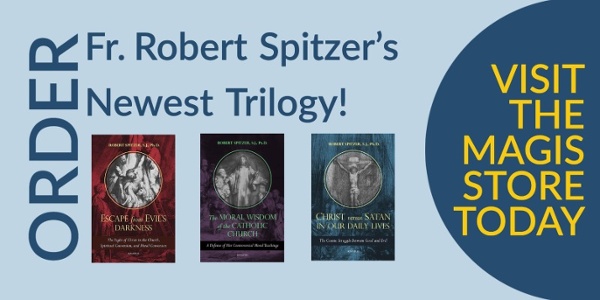In a previous post, it was mentioned that the human person possesses two “selves,” that is, the higher self and the lower self. The higher self is guided by reason and love, and the lower self is motivated by worldly pursuits such as pleasure and power. On account of sin and our fallen nature, it is part of the human condition to battle between these two selves. Moral conversion focuses on the consistent practice of the higher self’s triumph over the lower self.
The Role of Virtue in Moral Conversion
Moral conversion focuses specifically on the way we act. Virtue plays a key role in moral conversion because it is through the power of virtue that we are able to perform good actions as opposed to bad actions. The “Catechism of the Catholic Church” refers to virtue as:
“An habitual and firm disposition to do the good. It allows the person not only to perform good acts, but to give the best of himself. The virtuous person tends toward the good with all his sensory and spiritual powers; he pursues the good and chooses it in concrete actions.” —Catechism of the Catholic Church, 1803
Moral conversion is seen in the performance of concrete actions toward good and away from evil. In correlation, it is through the practice of virtue that the higher self takes dominion over the lower self.
Self-Mastery from Moral Conversion
A person who is morally converted is the master of himself. Sin no longer controls that person, but rather, that person has the ability to choose virtue over vice. Karol Wojtyla, now known as St. John Paul II, wrote extensively on this concept of self-mastery, or what he more often referred to as “self-possession.”
To possess yourself is to be the owner of yourself in the sense that you are not enslaved to sins of the flesh but free to perform the actions directed by your intellect and will. Wojtyla related that the person who possesses himself is the master of himself and, therefore, free to determine himself as a good or bad person.
Through our actions, we become the person that we are. In other words, our actions have the ability to determine ourselves morally by forming us into a person that is either good or bad. In this sense, we are the creators of ourselves in that we develop as morally converted individuals through our concrete decisions to choose the good.
Moral Conversion in Romans 7:15
In Romans 7:15, St. Paul echoes the struggle of mankind when he says, “I do not understand my own actions, for I do not do what I want, but I do the very thing I hate.” St. Paul reiterates the battle between our higher and lower selves, where we desire to live in accord with the goodness of our higher selves but often fall short on account of our struggle with sin and temptation.
The road to moral conversion instructs and strengthens us to avoid temptation and sin. It is a road where our higher selves triumph, enabling us to do the good we desire. Moreover, it is in moral conversion that we experience true freedom through self-mastery and the practice of virtue.
Fr. Spitzer'sTools on Moral Conversion
Fr. Spitzer has provided useful tools in helping us to conquer sin and live in true freedom. Turning to the psychological struggle of the battle between the higher and lower self, Fr. Spitzer has gathered insights from psychologists such as Albert Bandura and motivational author and speakers such as Lou Tice.
Fr. Spitzer also looks to the guidance of Ignatian spirituality, such as the daily examen and various prayers to say in times of temptation. Lastly, he instructs that a moral conversion is deeply complemented—or can even be inspired by—a spiritual conversion, that is, love for God. If one has a deep love for God, one will be more apt to sacrifice for Him and live a life of virtue.
For a fuller understanding of Fr. Spitzer’s take on moral conversion and how to resist temptation, be sure to read Fr. Spitzer’s scholarly article entitled "Moral Conversion and Resisting Temptation." And, read more in Fr. Spitzer's Called out of Darkness Trilogy—more specifically, the second book entitled Escape from Evil’s Darkness: The Light of Christ in the Church, Spiritual Conversion and Moral Conversion.

